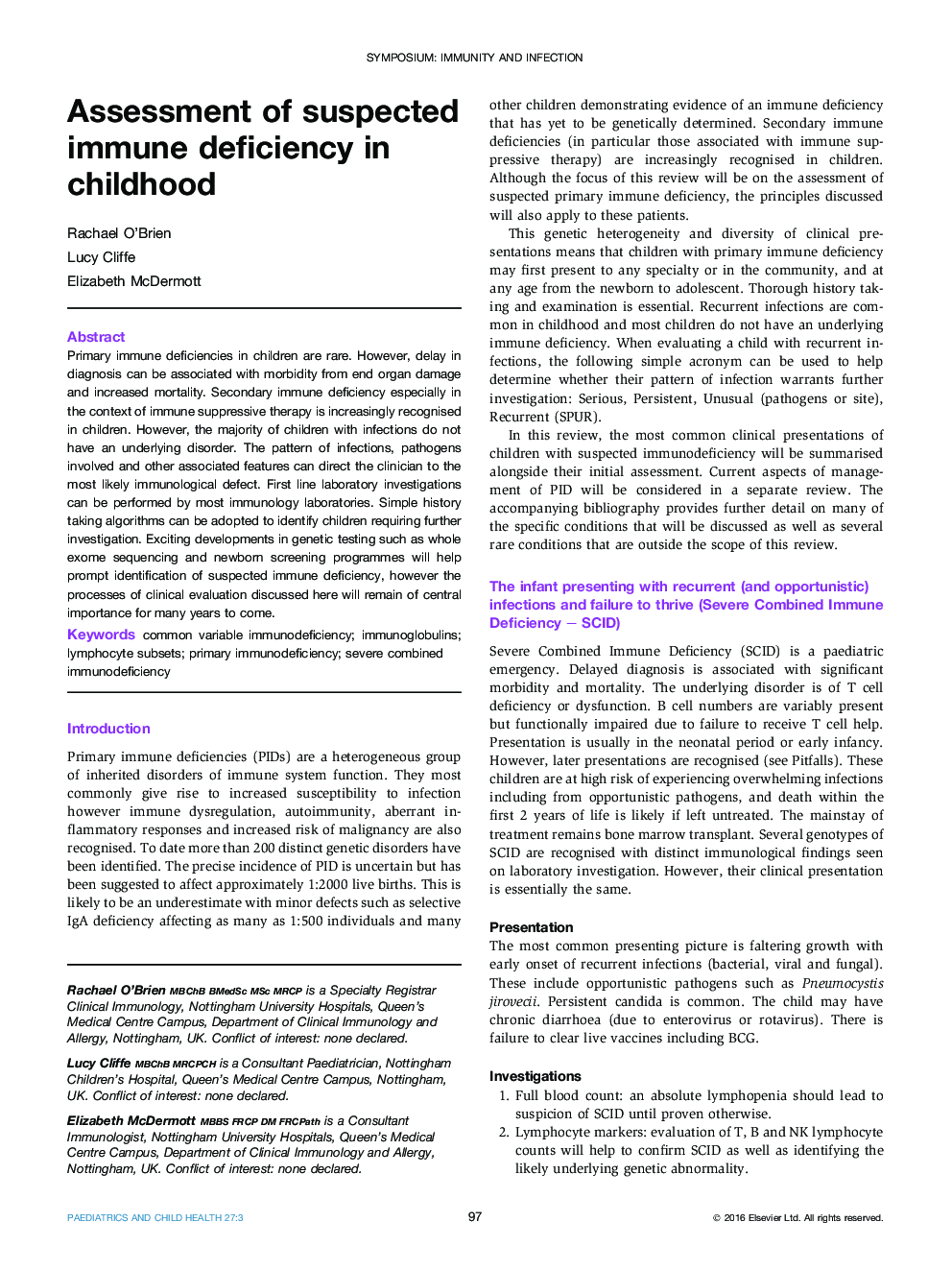| Article ID | Journal | Published Year | Pages | File Type |
|---|---|---|---|---|
| 5720082 | Paediatrics and Child Health | 2017 | 5 Pages |
Primary immune deficiencies in children are rare. However, delay in diagnosis can be associated with morbidity from end organ damage and increased mortality. Secondary immune deficiency especially in the context of immune suppressive therapy is increasingly recognised in children. However, the majority of children with infections do not have an underlying disorder. The pattern of infections, pathogens involved and other associated features can direct the clinician to the most likely immunological defect. First line laboratory investigations can be performed by most immunology laboratories. Simple history taking algorithms can be adopted to identify children requiring further investigation. Exciting developments in genetic testing such as whole exome sequencing and newborn screening programmes will help prompt identification of suspected immune deficiency, however the processes of clinical evaluation discussed here will remain of central importance for many years to come.
